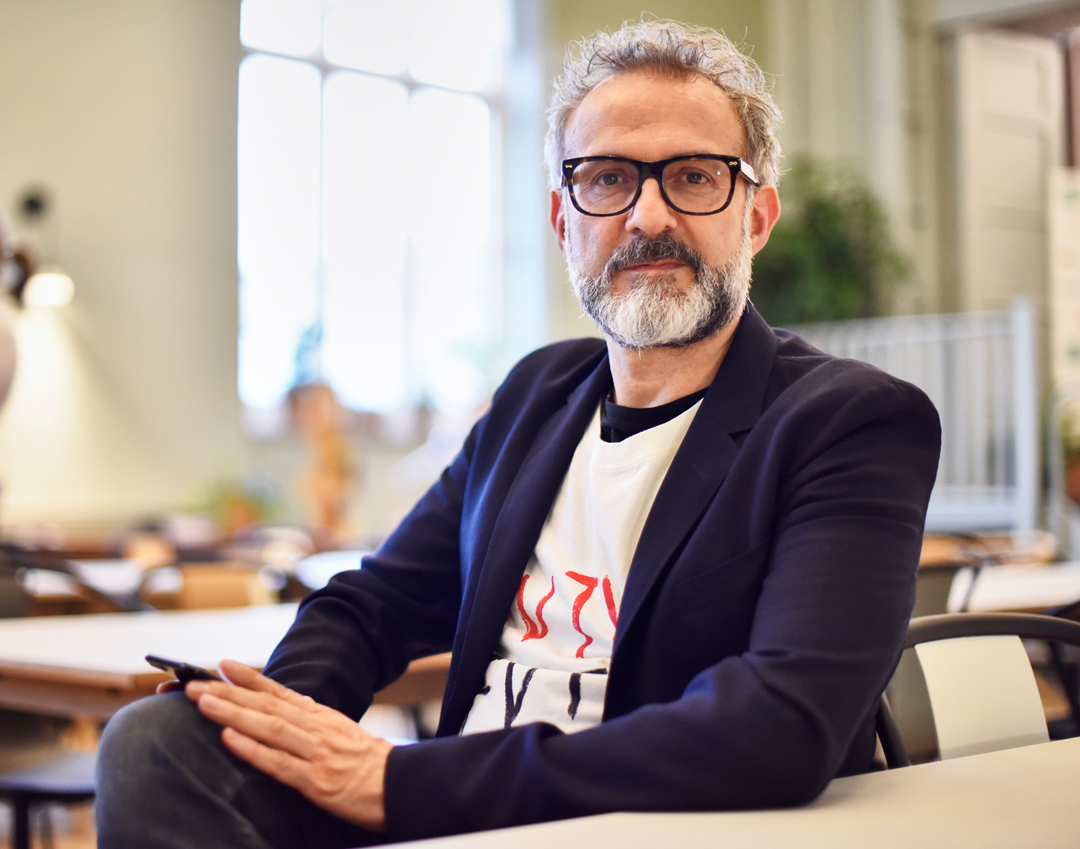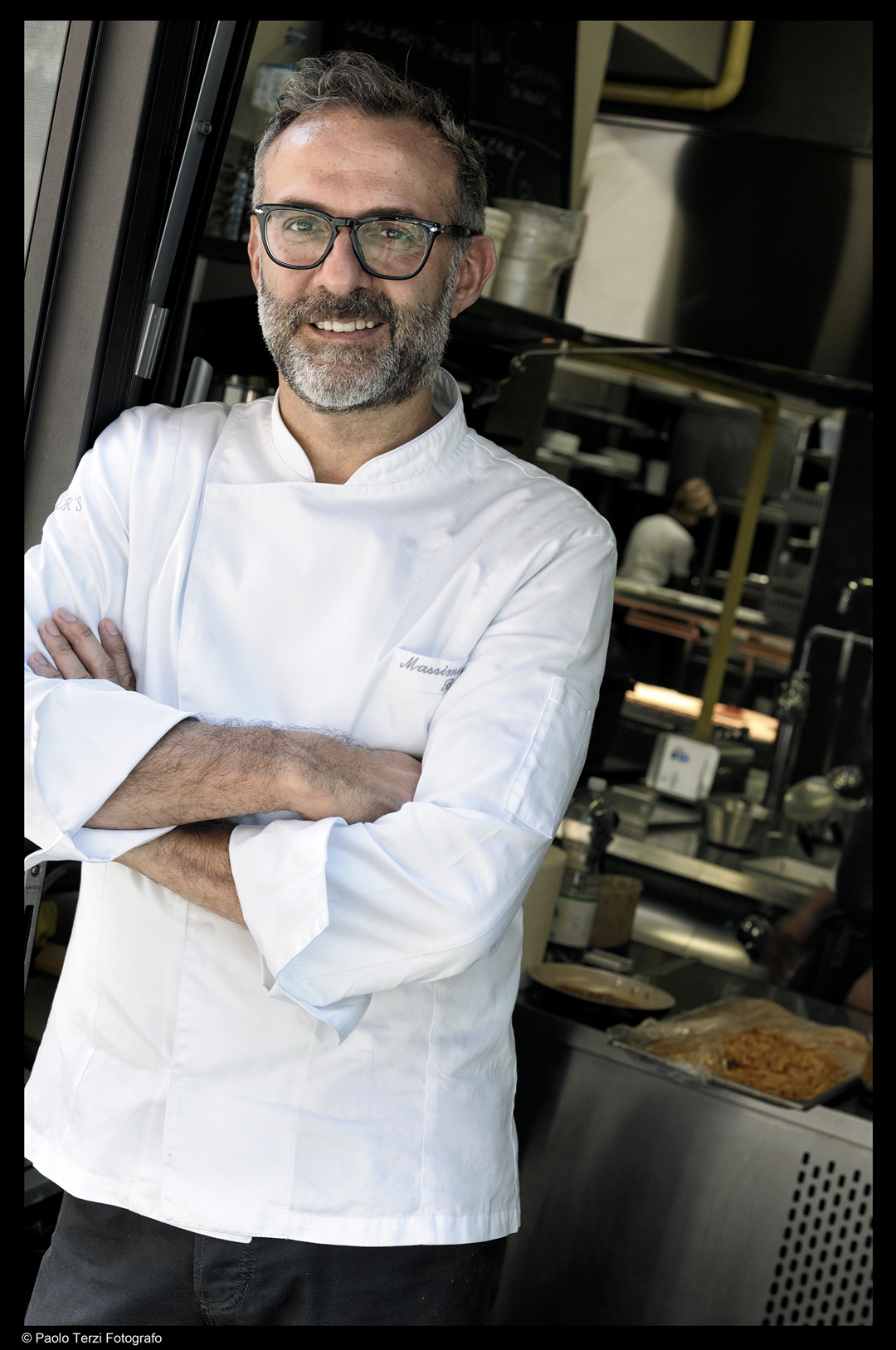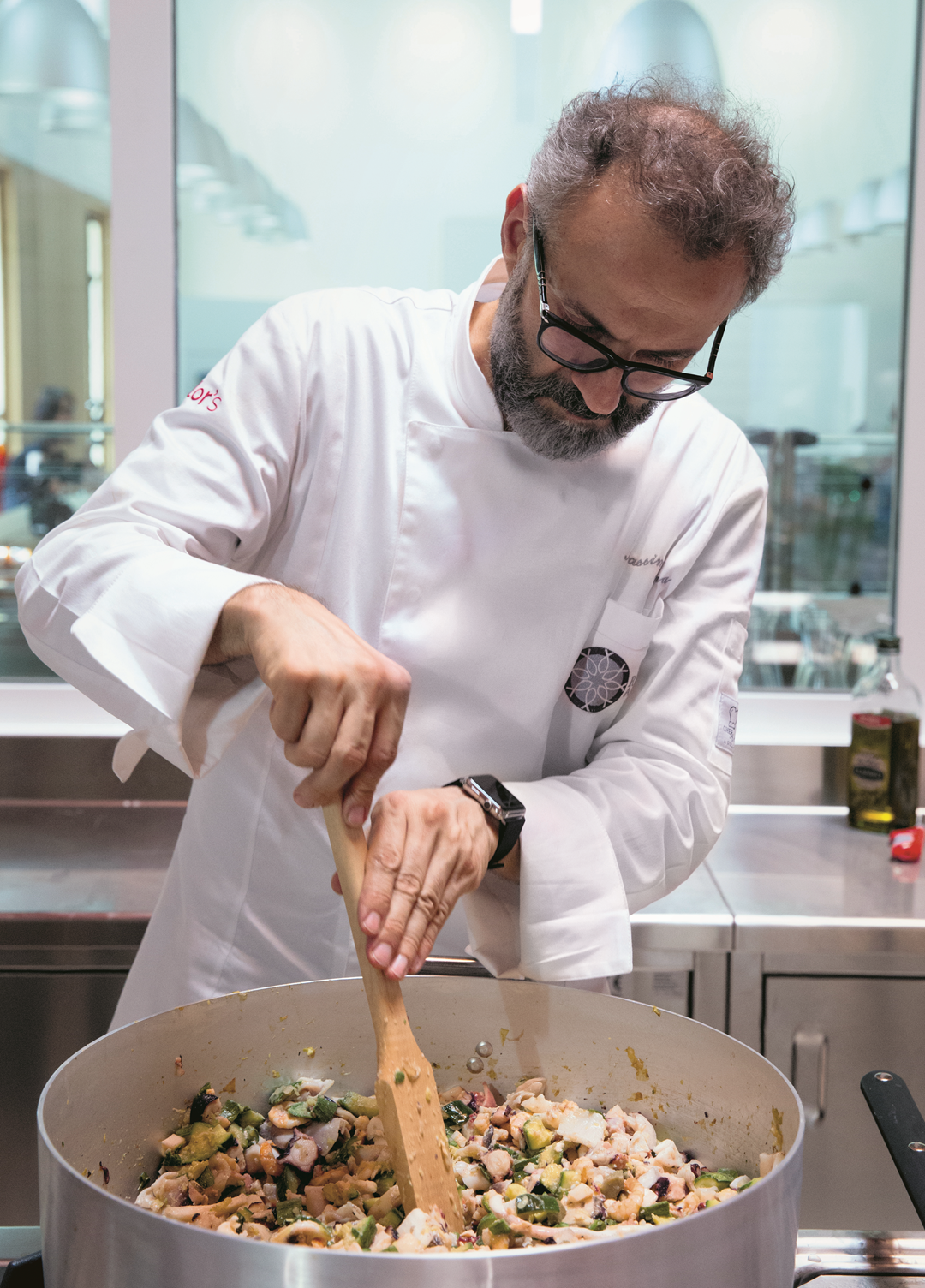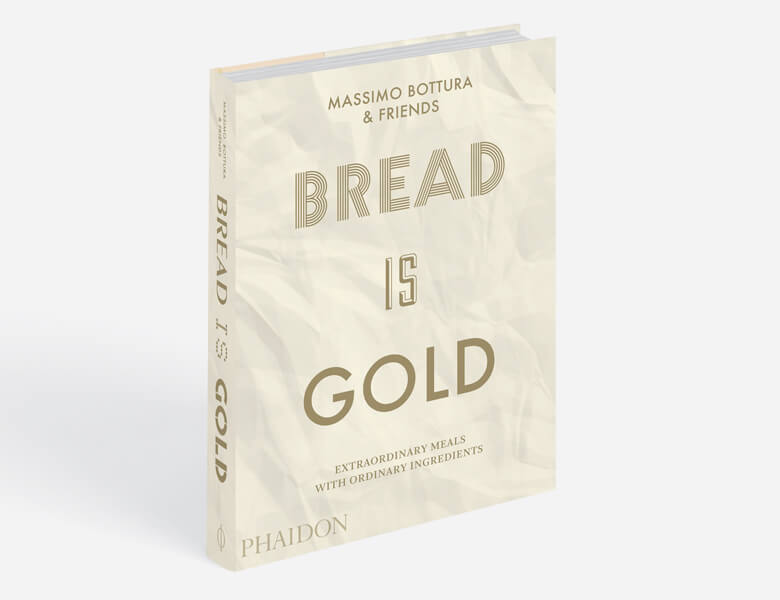
How food waste propelled Massimo Bottura back to No. 1
With his second World’s 50 Best Restaurants win, the chef, philanthropist and Phaidon author proved Bread is Gold
You could say that Massimo Bottura - whose Osteria Francescana just topped the 2018 World’s 50 Best Restaurants list – has been in the recycling business for some time.
Bottura’s first restaurant - a rundown, out-of-the-way place in the Modena countryside called Trattoria Campazzo - fell into his possession after Massimo’s brother Paolo bought it, in order to free up Campazzo‘s cook, who was, Paolo claimed, also a renowned mechanic, and just the sort of guy his Saab dealership needed.
Osteria Francescana – where Massimo truly made his name – also wasn’t entirely new either. In his book, Never Trust a Skinny Italian Chef, Bottura recalls a real estate agent giving Bottura a call around 1995, to inform him that the place, in the centre of Modena, had come up for sale. “All it needs is a new paint job and a chef,” the agent told Bottura, “and via Stella is a very lucky address.”

Bottura made his own luck at Osteria Francescana, taking the region’s culinary history, and reworking old traditions in the manner he’d come across in restaurants such as elBulli.
“We dug deep into our Italian culinary roots to find the most humble ingredients and techniques,” he recalls. “We embraced the region of Emilia-Romagna, united chefs and artisans and generated synergy.”
Massimo and his brigade also won three Michelin stars, and, in 2016, Osteria Francescana was voted number one restaurant at the World’s 50 Best Restaurants awards ceremony in New York.
However, Bottura wasn’t sitting still. He had already opened his first haute-cuisine soup kitchen, Refettorio Ambrosiano, during the 2015 Milan Expo.
Initially the restaurant took unwanted ingredients and food portions from the Expo’s stands out outlets, and repurposed them into healthy, nutritious food, which Massimo and his team then served to the city’s poor, in a lightly, convivial communal dining hall. However, over time it drew in waste from other restaurants too, becoming a permanent fixture in the city.

This was no simple source of sustenance; Massimo says in Bread is Gold, he “envisioned the most spectacular refettorio ever seen, filled with art, light, beauty, cooking, and life, named after the patron saint of Milan, Sant’Ambrogio.”
That dream came true, and that combination of unwanted ingredients, charity, and a fine setting proved irresistible; soon his famous chef friends, such as René Redzepi, Ferran Adrià and Ana Roš were offering to lend a hand, while Massimo sought out willing partners around the world, to help him open other refettorios in London, Rio and Paris. Now his food waste charity has turned over 45 tonnes of ingredients into over 450,000 dishes, enjoyed by over 150,000 guests.
Bottura is one of many talented chefs at work today; yet he deserves his place once again at the top of the World’s 50 Best List, not just for serving highly prized food to very fortunate diners in a beautiful setting, but also for the way he has managed to take less sought-after ingredients, and offer them to less-fortunate diners, in an equally convivial environment.
“We have to feed the world, we have to fight waste,” he said following his win. “I feel the same way that the lady who entered my refettorio did when she said: 'In this place I feel community. Now I can die happy'."

For a better understanding of this chef, his outlook and his recipes, order a copy of his latest book, Bread is Gold, and Massimo’s debut cook book, Never Trust a Skinny Italian Chef.